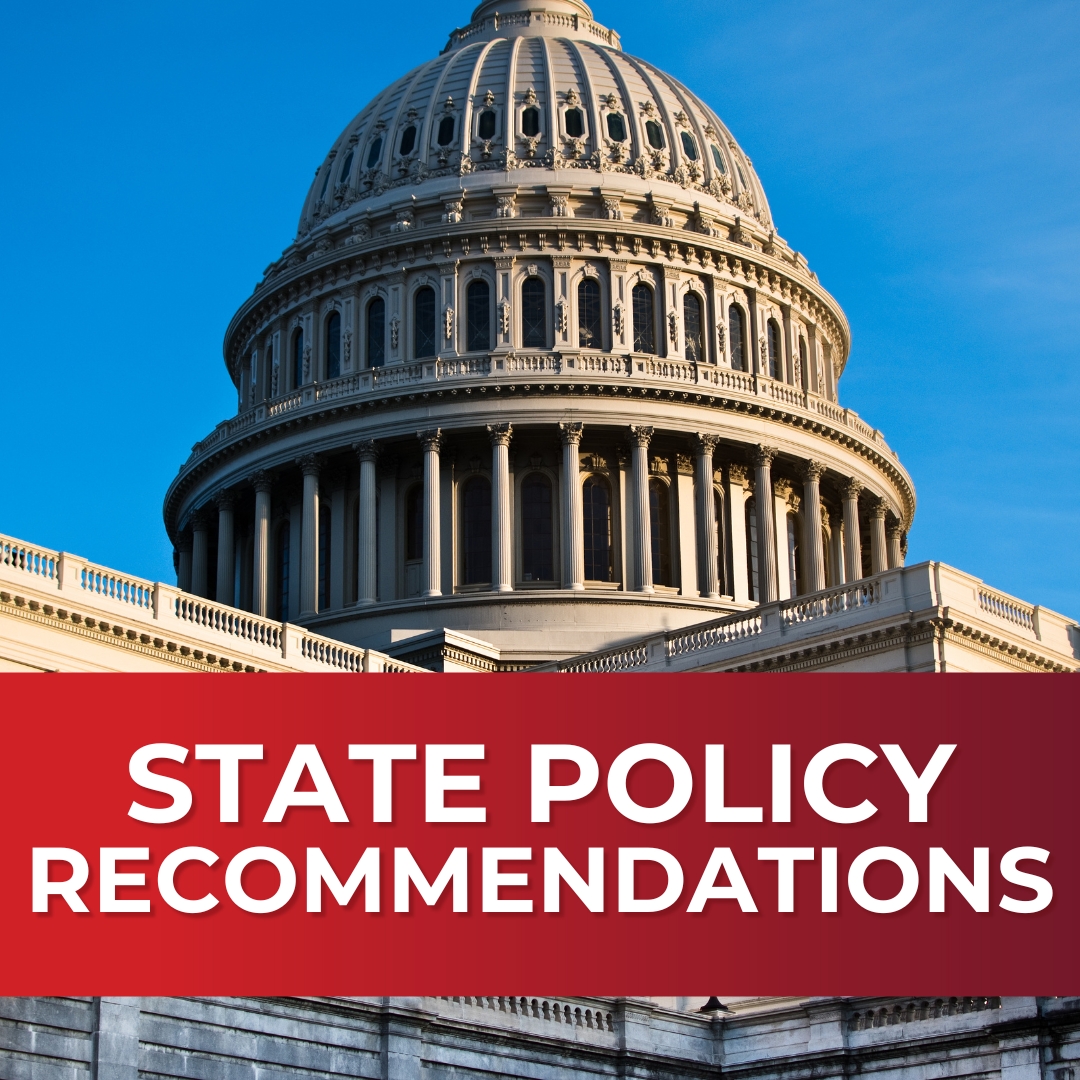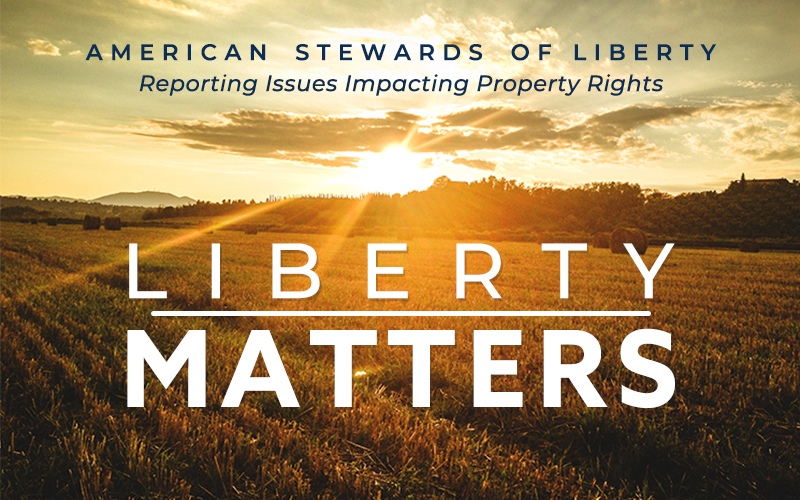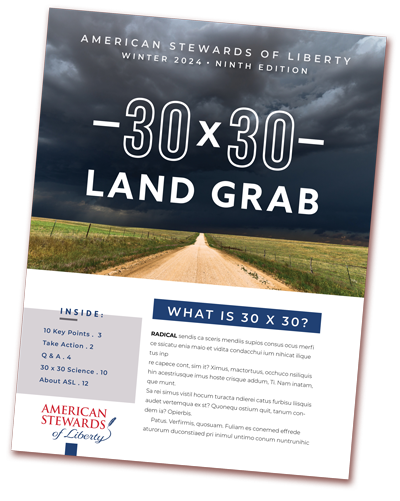State Policy Recommendations to Protect Landowners
Most State Legislatures will be convening this coming January, giving citizens an opportunity to restore property rights protections and stop the 30×30 agenda.
Over the past several years, numerous Legislatures have considered policies that furthers the Biden-Harris administration’s climate agenda and 30×30 Land Grab without many understanding the connection.
Below are key issues to watch for and keep your State House and Senate members apprised of, to ensure full constitutional protection of property rights.
- Land and Water Conservation Fund
Multiple states in their last legislative session had members introduce bills creating “Land and Water Conservation Funds.” These Funds take state dollars and create slush funds for environmental organizations and land trusts to secure matching grants, which are required to unlock the billions of federal dollars available to implement the Biden-Harris 30×30 Land Grab agenda at the local level.
In previous legislative sessions, ASL was asked to help educate members in Texas, Kansas and Tennessee on similar conservation bills. In Texas, it was the “Land and Water Conservation Fund.” In Kansas it was called the “Working Lands Conservation Fund” and in Tennessee the “Farmland Preservation Fund.”
All these funds had one common goal. They were designed to allow states to take federal dollars as matching grants to purchase conservation easements. Texas’ Fund took $2 billion of the state’s Rainy-Day funds to give as grants to environmental organizations specifically to purchase conservation easements.
With $2 billion just in state money, land trusts would have enough funding to place most of Texas’ private land under the control of the federal government through conservation easements.
Over the past three and a half years, The Biden-Harris administration has orchestrated a national agenda to use federal programs and funds to entice landowners to sign up under federal conservation programs or place permanent conservation easements on their land.
One of the major steps necessary to achieve their goal of permanently protecting 30 percent of our land and water by 2030, is to have individual states enact legislation that sets up the state matching grant program.
Make sure your state leaders are aware of these types of bills.
- Natural Asset Companies
With the help of dozens of powerful friends, ASL exposed and defeated the Securities and Exchange Commission’s (SEC) proposed rule to create Natural Asset Companies (NACs).
In September of 2021, we learned of a group backed by the Rockefeller Foundation called the Intrinsic Exchange Group (IEG) who partnered with the New York Stock Exchange (NYSE) to create a new investment vehicle known as “Natural Asset Companies,” or NACs.
IEG proposed to quantify and, for the first time, monetize natural processes and ecosystem services through a vehicle that would allow global elites and foreign adversaries to profit from, and control, development of America’s natural resources.
Within four short months, the New York Stock Exchange withdrew their proposal in light of opposition from members of Congress, State Treasurers and Attorneys General, and landowners all across the country.
In the meantime, multiple bills were crafted to prevent future attempts to create NACs at the state and federal level. Such a bill was filed in Nebraska and in Congress, U.S. Representative Mark Green (TN-07) and Representative Harriet Hageman (WY-AL) introduced the “Protect America’s Lands Act” to stop future NACs.
At the last American Legislative Exchange Council (ALEC) annual meeting, a model state bill aimed at preventing the creation of Natural Asset Companies (NACs) was spearheaded by Craig Rucker, President of the Committee for a Constructive Tomorrow (CFACT) and introduced by South Dakota State Representative Julie Auch.
The CFACT model NAC bill is titled the “Natural Asset Company Prohibition Act.” It was designed to stop companies and countries (some foreign, including China) from profiting through the purchase and locking up U.S. lands for no meaningful purpose other than to stop farming, ranching, or resource extraction.
If you want to prevent NACs from being created in your state, we recommend you share the “Natural Asset Company Prohibition Act” with your state House and Senate members.
- Conservation Easements
With the exposure of the Natural Asset Companies scam and Biden’s 30×30 Land Grab, conservation easements have been revealed as a critical tool to take control of private property.
Billions of federal dollars have been funneled toward NGO’s and Land Trusts to entice landowners into placing conservation easements on their land. This has caused many lawmakers to look for ways to put guardrails on the device. One key correction that has been advanced is to end “forever” easements by requiring a sunset provision in the contract.
ASL has long agreed with the rule against perpetuities that does not allow the “dead hand” to control how property will be used beyond the owner’s death. That is precisely the rule conservation easements violate. They take away the next generation’s ability to decide how the land they have inherited or purchased can be used.
Placing a term limit such as 15 years or letting it to expire five years after the death of the landowner, would be a sensible policy. As technology and agriculture production methods evolve, land uses should not be limited to those used in the previous century.
Conservation easements are becoming a burden to local and state governments, as they generally lower the value by 40 percent. That lower value decreases the tax base, restricting the ability of local governments to pay for necessary services. This also raises the taxes on neighboring landowners to make up the difference.
States have the authority to prevent Conservation Easements in perpetuity, protecting the property rights and productive uses of the lands for future generations.
- 391 Commissions
In Texas, we have a state statute known as “Local Government Code 391.”
Section 391.009(c) of Texas’ Local Government Code, states “In carrying out their planning and program development responsibilities, state agencies shall, to the greatest extent feasible, coordinate planning with commissions to ensure effective and orderly implementation of state programs at the regional level.”
This statute was added by Rep. Rob Junell from San Angelo, Texas, who was appointed by President George W. Bush to the federal bench as a U.S. District Judge, now retired. Rob told us that he added the 391(c) language to the code because his constituents could not get the Texas Department of Transportation, one of the nation’s largest state agencies, to work with his local governments to solve local problems and issues.
Other states could advance similar language requiring their state agencies to coordinate with local governments. In Texas, the Code requires two counties or two cities or one county and one city to form a Planning Commission. Once formed, it can invoke the 391 requirement for their state agencies to work with local governments to “harmonize” planning programs and policies.
For over 30 years, ASL has utilized coordination to protect property rights. At the Federal level, coordination requires federal agencies to resolve conflicts with states and local governments, for the purpose of achieving policy consistency. It recognizes the unique web of authorities between the three levels of government and directs the federal agencies to harmonize their position with states, local governments, and tribes.
You can learn more about the coordination process on the ASL website.





